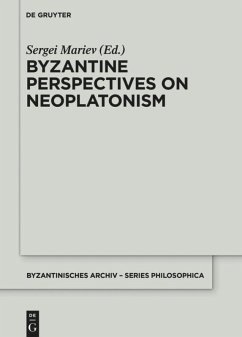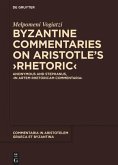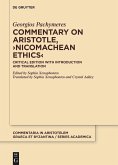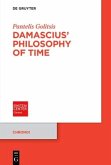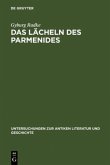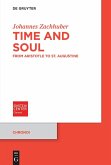Byzantine intellectuals not only had direct access to Neoplatonic sources in the original language but also, at times, showed a particular interest in them. During the Early Byzantine period Platonism significantly contributed to the development of Christian doctrines and, paradoxically, remained a rival world view that was perceived by many Christian thinkers as a serious threat to their own intellectual identity. This problematic relationship was to become even more complex during the following centuries. Byzantine authors made numerous attempts to harmonize Neoplatonic doctrines with Christianity as well as to criticize, refute and even condemn them. The papers assembled in this volume discuss a number of specific questions and concerns that drew the interest of Byzantine scholars in different periods towards Neoplatonic sources in an attempt to identify and explore the central issues in the reception of Neoplatonic texts during the Byzantine era. This is the first volume of the sub-series "Byzantinisches Archiv - Series Philosophica", which will be dedicated to the rapidly growing field of research in Byzantine philosophical texts.
"Die neue Series Philosophica des Byzantinischen Archivs erfüllt ein altes Desiderat, nämlich eine Plattform zu schaffen für Studien der Philosophie des griechischen Mittelalters, auch Byzantinische Philosophie genannt, die bisher ein unverdientes Nischendasein gefristet hat. [...] Der erste Band nun der neuen Serie Byzantine Perspectives on Neoplatonism, herausgegeben von Sergei Mariev, versammelt die Früchte zweier Tagungen zum Thema in Cardiff (2013) und Lissabon (2014) und setzt bereits sehr hohe Maßstäbe. [...] Dieser Band besticht durch die sorgfältige Auswahl von Beiträgen, die das ganze Spektrum neuplatonischen Denkens in Byzanz und darüber hinaus darstellen. Sehr hilfreich ist die Auswahlbiographie, die als "Bonus" das Buch abschließt und sämtliche relevanten Titel zum Thema Neuplatonismus in Byzanz gesondert aufführt. Somit ist ein großer Schritt unternommen, die Philosophie im griechischen Mittelalter als interessantes und lohnendes Untersuchungsfeld zu etablieren, dem hoffentlich viele weitere folgen werden."
Isabella Schwaderer in: Philosophisches Jahrbuch 125. Jahrgang / I (2018), 124-126
"Der vorliegende Band ist die erste Veröffentlichung in einer neuen Reihe des 'Byzantinischen Archivs' mit dem Titel 'Series Philosophica', die der byzantinischen Philosophiegeschichte gewidmet ist. Dabei kommt diese neue Reihe dem Desideratum nach, der in den letzten Jahrzehnten stark an Popularität gewonnenen Forschung der Philosophiegeschichte Ostroms ein Forum zu bieten. [...] der Band [bietet] eine Anzahl erkenntnisreicher und teilweise innovativer Forschungsbeiträge zum byzantinischen Neuplatonismus."
András Kraft in: Plekos 20, 2018, pp. 41-50
"Questa raccolta si fa apprezzare non solo perché fornisce al lettore un quadro complessivo sul Neoplatonismo a Bisanzio, ma anche perché contiene importanti approfondimenti sulle opere e il pensiero di figure meno note del millennio bizantino, come Eustrazio di Nicea, Nicola di Metone e Ioane Petritsi."
Gianmario Cattaneo in: MEG 19 (2019), 444-446
"Der Sammelband, der als Ergebnis einer persönlichen Initiative des Herausgebers S. Mariev entstanden zu sein scheint, erfüllt für Wissenschaftler ebenso wie auch für Studenten eine hilfreiche Funktion: Er präsentiert, synthetisiert und verdeutlicht die Hauptlinien der bisherigen Forschung samt ihrer Bibliographie in einem zentralen, aber noch immer unvollständig, teilweise unsystematisch erforschten und darum thematisch hochproblematischen Bereich der Byzantinistik. Gleichzeitig und neben dem informativen und berichtsspezifischen Charaktereiniger Beiträge bereichert er die byzantinistische Quellenforschung durch neue Methoden- und Interpretationsperspektiven wie durch Ergebnisse, die sich auch auf kulturhistorischer Ebene als bedeutsam erweisen."
Markos Kermanidis in: Gnomon 91/8 (2019), 695-698
"The volume is an important contribution to the growing demand of studies in Byzantine philosophy, and it is a must-have book in the library of any Byzantine scholar. It deserves the attention of scholars working on the
history of Byzantine philosophy, but as well as of historians and theologians, as it highlights some entanglements between Greek philosophy and Byzantine theology." Florin George Calian in: Review of Ecumenical Studies, vol. 11, issue 3, 2918, 508-517
Isabella Schwaderer in: Philosophisches Jahrbuch 125. Jahrgang / I (2018), 124-126
"Der vorliegende Band ist die erste Veröffentlichung in einer neuen Reihe des 'Byzantinischen Archivs' mit dem Titel 'Series Philosophica', die der byzantinischen Philosophiegeschichte gewidmet ist. Dabei kommt diese neue Reihe dem Desideratum nach, der in den letzten Jahrzehnten stark an Popularität gewonnenen Forschung der Philosophiegeschichte Ostroms ein Forum zu bieten. [...] der Band [bietet] eine Anzahl erkenntnisreicher und teilweise innovativer Forschungsbeiträge zum byzantinischen Neuplatonismus."
András Kraft in: Plekos 20, 2018, pp. 41-50
"Questa raccolta si fa apprezzare non solo perché fornisce al lettore un quadro complessivo sul Neoplatonismo a Bisanzio, ma anche perché contiene importanti approfondimenti sulle opere e il pensiero di figure meno note del millennio bizantino, come Eustrazio di Nicea, Nicola di Metone e Ioane Petritsi."
Gianmario Cattaneo in: MEG 19 (2019), 444-446
"Der Sammelband, der als Ergebnis einer persönlichen Initiative des Herausgebers S. Mariev entstanden zu sein scheint, erfüllt für Wissenschaftler ebenso wie auch für Studenten eine hilfreiche Funktion: Er präsentiert, synthetisiert und verdeutlicht die Hauptlinien der bisherigen Forschung samt ihrer Bibliographie in einem zentralen, aber noch immer unvollständig, teilweise unsystematisch erforschten und darum thematisch hochproblematischen Bereich der Byzantinistik. Gleichzeitig und neben dem informativen und berichtsspezifischen Charaktereiniger Beiträge bereichert er die byzantinistische Quellenforschung durch neue Methoden- und Interpretationsperspektiven wie durch Ergebnisse, die sich auch auf kulturhistorischer Ebene als bedeutsam erweisen."
Markos Kermanidis in: Gnomon 91/8 (2019), 695-698
"The volume is an important contribution to the growing demand of studies in Byzantine philosophy, and it is a must-have book in the library of any Byzantine scholar. It deserves the attention of scholars working on the
history of Byzantine philosophy, but as well as of historians and theologians, as it highlights some entanglements between Greek philosophy and Byzantine theology." Florin George Calian in: Review of Ecumenical Studies, vol. 11, issue 3, 2918, 508-517

